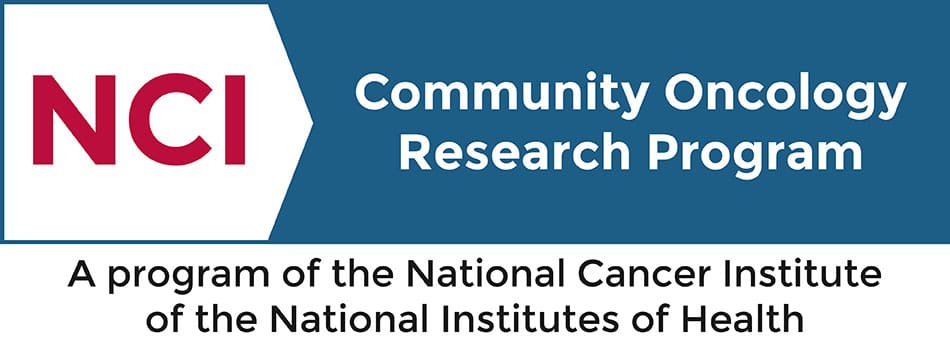- CANCER CARE
- Cancer Centers of Excellence
- Cancers We Treat
- Brain/Neuro Cancer
- Breast Cancer
- Colorectal Cancer
- Lung Cancer
- Prostate Cancer
- Bile Duct Cancer
- Bladder Cancer
- Bone Cancer
- Cervical Cancer
- Duodenal Cancer
- Esophageal Cancer
- Gallbladder Cancer
- Head and Neck Cancer
- Kidney Cancer
- Leukemia
- Liver Cancer
- Melanoma
- Multiple Myeloma
- Lymphoma
- Ovarian Cancer
- Pancreatic Cancer
- Rectal Cancer
- Soft Tissue/Sarcoma
- Small Intestine Cancer
- Stomach Cancer
- Thyroid Cancer
- Uterine Cancer
- Vaginal Cancer
- Vulvar Cancer
- Testicular Cancer
- Cancer Treatment Options
- Cancer Support Services
- Fertility Program
- Nurse/Patient Navigators
- Nutrition Counseling
- Supportive Care and Services
- Lymphedema Management Program
- Quit Smoking Program
- Oncology Social Work
- Support Groups
- Survivorship Program
- Wellness Programs
- Community Resources
- Lung Navigation Program
- Breast Health Navigation Program
- Gastrointestinal (GI) Cancer Navigation Program
- Gynecological Oncology Navigation Program
- Hospice Service
- Cancer Genetics Program
- Cancer Centers of Excellence
- Cancers We Treat
- Brain/Neuro Cancer
- Breast Cancer
- Colorectal Cancer
- Lung Cancer
- Prostate Cancer
- Bile Duct Cancer
- Bladder Cancer
- Bone Cancer
- Cervical Cancer
- Duodenal Cancer
- Esophageal Cancer
- Gallbladder Cancer
- Head and Neck Cancer
- Kidney Cancer
- Leukemia
- Liver Cancer
- Melanoma
- Multiple Myeloma
- Lymphoma
- Ovarian Cancer
- Pancreatic Cancer
- Rectal Cancer
- Soft Tissue/Sarcoma
- Small Intestine Cancer
- Stomach Cancer
- Thyroid Cancer
- Uterine Cancer
- Vaginal Cancer
- Vulvar Cancer
- Testicular Cancer
- Cancer Treatment Options
- Cancer Support Services
- Fertility Program
- Nurse/Patient Navigators
- Nutrition Counseling
- Supportive Care and Services
- Lymphedema Management Program
- Quit Smoking Program
- Oncology Social Work
- Support Groups
- Survivorship Program
- Wellness Programs
- Community Resources
- Lung Navigation Program
- Breast Health Navigation Program
- Gastrointestinal (GI) Cancer Navigation Program
- Gynecological Oncology Navigation Program
- Hospice Service
- Cancer Genetics Program
What is Brain Cancer?
Brain cancer happens when abnormal cells grow and form masses, or tumors in the brain. Sometimes, this is called “neurological cancer”, which may also include the spinal cord or both the spine and the brain.
While tumors in the brain become cancerous, it’s important to understand that not all tumors are cancerous. Brain tumors that are cancerous are called malignant, while brain tumors that are not cancerous are called benign.
What are the Symptoms of Brain Cancer?
Brain and neurological cancers have many different signs and symptoms. These may affect other parts of the body, depending on where the tumor is located. For example, a tumor near the part of the brain that affects speech can make speaking difficult while a tumor near the optical nerve may cause blindness or blurry vision. Here are some signs and symptoms of brain tumors:
- Altered sight, hearing, and ability to talk
- Bruising
- Changes in personality or mood
- Confusion and disorientation
- Cushing’s syndrome, a hormonal condition caused by too much stress hormone (cortisol)
- Diabetes
- Feeling tired with no good explanation
- Headaches (that may change based on your head position and the time of day)
- Memory loss
- Menstrual cycle changes
- Muscle weakness
- Nausea or vomiting
- Numbness
- Seizures
- Speaking difficulties
- Trouble with balance or walking
Testing and Screening Options
To determine your medical condition, your doctor will have to perform tests that allow him or her to assess your nervous system. He or she will most likely order some sort of scan to learn more about your tumor such as its location and size. Common tests include MRI, CT scan, and biopsy.
Treatment
For those diagnosed with brain cancer, there are several different treatment options. Your treatment will depend on the nature of your condition and may include:
- Surgery, neurosurgery, and craniotomy
- Surgical techniques that don’t require major cutting, such as endoscopy
- Radiotherapy
- Chemotherapy
- Intraoperative radiation therapy (IROT)


